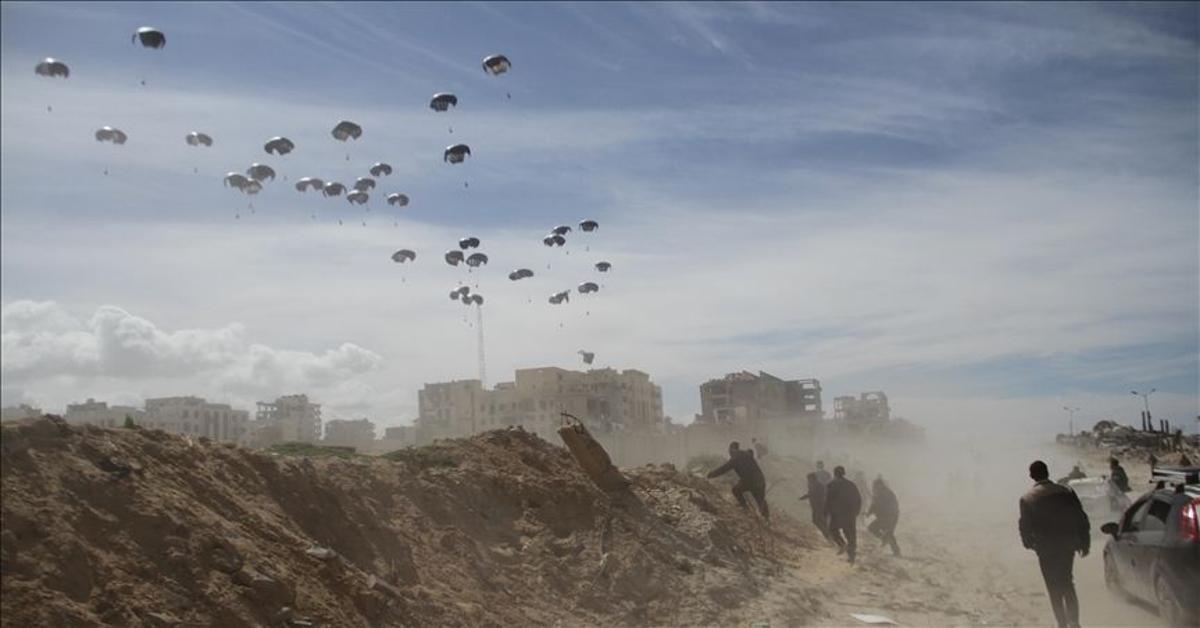U.S. officials say they recognize "the critical role" UNRWA plays in distributing aid inside the densely populated enclave Israel's assault has brought that close to famine during the past five months. "We have to plan because Congress may make that pause permanent," State Department spokesperson Matthew Miller told reporters on Tuesday.
Washington has been looking at working with humanitarian partners on the ground, such as UNICEF and the World Food Programme (WFP), to continue giving aid. But officials are aware that UNRWA is hard to replace.
"There are other organizations that are now providing some distribution of aid inside Gaza, but that is primarily the role that UNRWA is equipped to play that no one else is because of their longstanding work and their networks of distribution and their history inside Gaza," Miller said.
'UNRWA is a front'
A few Democrats in the U.S. Senate, including Senator Chris Van Hollen and some progressive members in the U.S. House of Representatives, have opposed an indefinite ban on funding to UNRWA. But any new funding would need the support of at least some Republicans, who hold a majority in the House. Many have expressed their opposition to UNRWA.
"UNRWA is a front, plain and simple," Representative Brian Mast, the Republican chair of the House Foreign Affairs Subcommittee on Oversight and Accountability, said in a statement. "It masquerades as a relief organization while building the infrastructure to support Hamas ... It is literally funneling American tax dollars to terrorism," Mast said.
Asked for comment on Mast's claims, UNRWA Director of Communications Juliette Touma said an independent review led by former French Foreign Minister Catherine Colonna is assessing the "measures that UNRWA has in place regarding the neutrality of the agency, its staff and programs."
"We encourage member states, individuals and entities to share any information about accusations against UNRWA with the investigation, or with the ongoing review, to look into them," Touma said. UNRWA was established in 1949 by a U.N. General Assembly resolution after the war that followed Israel's founding, when 700,000 Palestinians fled or were driven from their homes.
Today it directly employs 30,000 Palestinians, serving the civic and humanitarian needs of 5.9 million descendants of those refugees, in the Gaza Strip, West Bank and in vast camps in neighboring Arab countries.
In Gaza, UNRWA runs the enclave's schools, primary healthcare clinics and other social services, and distributes humanitarian aid. William Deere, director of UNRWA's Washington Representative Office, told Reuters that U.S. support accounts for one-third of UNRWA's budget.
"That's going to be very hard to overcome," he said. "Please remember that UNRWA is more than Gaza. It's health care and education and social services. It's East Jerusalem, the West Bank, Jordan, Syria, Lebanon." Fighters from Hamas, which administers Gaza, killed 1,200 people in the Oct. 7 attack on Israel and took 253 hostages, according to Israeli tallies, an assault that sparked one of the bloodiest wars in the decades-long Israeli-Palestinian conflict.
Israel's retaliatory military campaign on the densely populated enclave has killed more than 31,000 Palestinians, according to Gaza authorities, while infrastructure has been obliterated and hundreds of thousands are now close to famine.
Source: Reuters
#haber#
